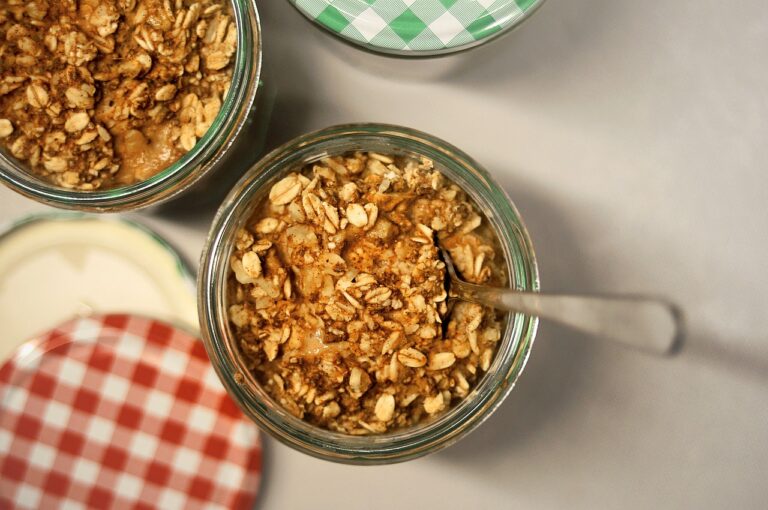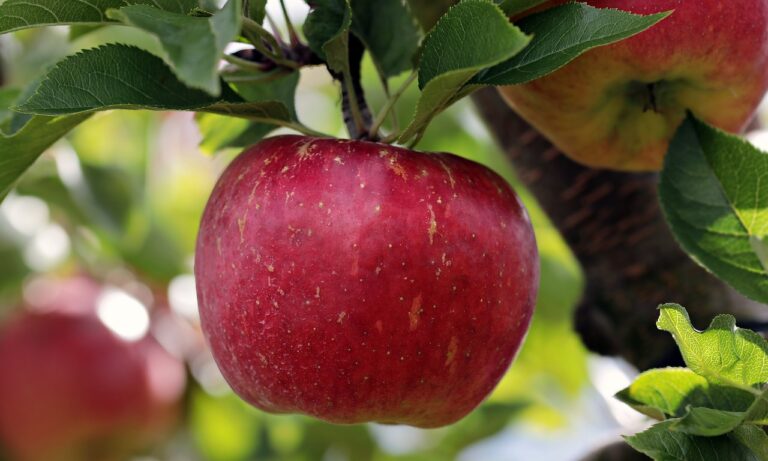10 Interesting Reasons Why You Are Always Craving Sweets

Sugar cravings are a common phenomenon experienced by many. From a piece of chocolate after dinner to a mid-afternoon cookie break, the desire for sweets can be irresistible. But why do we crave these sugary delights? This article explores ten reasons behind our sweet-tooth inclinations.
Why Am I Craving Sweets?
1. Evolutionary Biology
Our ancestors primarily relied on fruits as a source of energy. These fruits, rich in natural sugars, provided the quick energy needed for survival. The sweet taste indicated the fruit was ripe, making it beneficial to consume.
Over time, our brains have associated the sweet taste with energy. Even in our modern-day diet, sugary foods provide a rapid energy boost. Thus, craving sweets can be seen as an evolutionary response to our ancient dietary patterns.
2. Emotional Comfort
Sweets are often associated with comfort and reward. Many of us have childhood memories of receiving a candy as a treat or to soothe a bad day.
Emotionally, sugar acts as a temporary mood booster. When we’re stressed, sad, or anxious, consuming sweets can elevate our mood by triggering the release of feel-good hormones like serotonin. However, relying on sugar for emotional comfort can lead to an unhealthy cycle of consumption.
3. Blood Sugar Fluctuations
The level of glucose in our bloodstream plays a significant role in our cravings. When our blood sugar drops, our body signals a need for a quick energy source, often in the form of sweets.
After consuming a meal rich in refined carbohydrates, our blood sugar can spike and then drop rapidly. This drop prompts the body to crave more sugar to balance the levels, leading to a continuous cycle of sugar highs and lows.
4. Hormonal Changes
Hormonal shifts, especially in women, can lead to increased sugar cravings. For instance, during menstruation, pregnancy, or menopause, fluctuations in estrogen and progesterone can affect mood and appetite.
These hormonal changes can lead to a decreased level of serotonin in the brain. As a result, women might crave sweets to replenish serotonin levels and enhance their mood.
5. Lack of Sleep
Sleep deprivation can significantly impact our food choices. A lack of restful sleep affects the balance of hunger hormones, leptin, and ghrelin.
When we’re tired, our body seeks quick energy, often leading us to opt for sugary snacks. Additionally, the reward centers in our brain become more receptive to the allure of sweets when we’re sleep-deprived.
6. Nutritional Deficiencies
Sometimes, our body craves specific nutrients, which can manifest as sugar cravings. For example, a deficiency in magnesium, chromium, or zinc might increase our desire for sweets.
While sugar doesn’t provide these minerals, some sweet foods like chocolates contain them. Therefore, our body might associate the craving with sugar when it’s actually seeking the nutrients.
7. Habitual Behavior
Our daily habits and routines play a significant role in our cravings. If we’re accustomed to having a dessert after dinner or a sweet snack at a particular time, our body will come to expect it.
Over time, these routines become ingrained, and missing that routine can lead to a heightened sense of craving. Breaking such habitual patterns requires conscious effort and alternative strategies.
8. Social and Cultural Influences
Our environment and cultural background also shape our food preferences. Celebrations, holidays, and social gatherings often feature sweets as a primary attraction.
Being in environments where sweets are the norm can amplify our cravings. The shared experience of indulging in sugary delights can also create a social bond, reinforcing our desire for them.
9. Brain Chemistry
Consuming sugar activates the brain’s reward system, releasing dopamine, a neurotransmitter associated with pleasure and reward. Over time, regular sugar consumption can lead to increased cravings as the brain seeks that dopamine release.
This cycle is similar to addiction, where repeated exposure leads to increased desire and consumption, making sugar hard to resist.
10. Limited Access and Scarcity
The idea of forbidden fruit is enticing. When we restrict ourselves from consuming sweets or label them as “bad”, the desire to have them increases.
Restrictive diets that eliminate sugar can lead to intense cravings. Our brain focuses on what it can’t have, making sweets seem even more appealing.
Always Craving Sweets At Night
Craving sweets at night might be due to a drop in blood sugar levels, which can happen after the energy expenditure of the day. Our bodies seek a quick source of energy to replenish, and sugar offers a rapid solution. Additionally, the evening can be a time when we finally relax, and craving sweets can be a form of emotional comfort or a reward after a long day.
Eating patterns that lack balance during the day might lead to nutrient deficiencies, making the body crave quick energy sources like sweets. Stress and poor sleep quality can also increase the craving for sweets, as sugar consumption temporarily boosts serotonin, providing a sense of well-being. Addressing these underlying issues, such as improving diet balance and managing stress, can help mitigate nighttime cravings for sweets.
Craving Cold Sweet Drinks
Craving cold sweet drinks can be attributed to dehydration, where the body misinterprets thirst for hunger or specific cravings. On hot days or after activities that cause sweating, the body may crave cold drinks to cool down and replenish fluids. Sweet flavors are often preferred due to their immediate pleasurable taste and quick energy boost.
This craving can also be a habit formed from repeatedly choosing sweetened beverages as a source of hydration, leading to a preference for these drinks. Additionally, the craving for cold sweet drinks can be enhanced by external cues such as sunny weather or seeing others enjoying similar beverages. Moderation and substituting with healthier options like infused water can help manage these cravings.
Craving For Sweets After Meal
Craving for sweets after a meal is often due to the body’s natural desire for a taste balance, seeking something sweet following savory or salty foods. It can also be a conditioned response, where dessert becomes a habitual end to meals. These cravings might indicate that the meal didn’t fully satisfy one’s nutritional or energy needs, leading to a desire for quick energy from sweets.
Including a balanced amount of complex carbohydrates and fibers in meals can help in feeling fuller and reduce cravings. Psychological factors, such as associating sweets with rewards or comfort, play a significant role. Mindful eating and ensuring meals are nutritionally complete can help curb the cravings for sweets post-meals.
Craving For Sweets During Pregnancy
Craving for sweets during pregnancy is common, often driven by hormonal changes that affect taste preferences and energy needs. Pregnant women may experience heightened senses, making sweet tastes more appealing. These cravings can also be a body’s way of signaling the need for more calories to support the growing fetus.
Additionally, emotional factors and mood swings during pregnancy can increase cravings for sweets as a form of comfort or stress relief. Ensuring a balanced diet with adequate nutrients can help manage these cravings. It’s also important to consult healthcare providers to address any underlying nutritional deficiencies and to balance cravings with healthy choices.
Craving Jelly Sweets
Craving jelly sweets can stem from a combination of factors, including a preference for their texture, a psychological need for comfort or reward, and the body’s desire for quick energy. Jelly sweets offer a unique mouthfeel that can be satisfying for many, alongside their intense sweetness. These cravings might also indicate a lack of variety or satisfaction in one’s diet, leading to a search for something different and rewarding.
Incorporating a variety of textures and flavors in meals can help satisfy these sensory desires without resorting to high-sugar options. Understanding emotional triggers for such cravings is crucial; addressing these can reduce reliance on sweets for emotional satisfaction. Alternatives like fruit gels made with natural sugars can offer a healthier option to fulfill this craving.
Craving Sweet Juice
Craving sweet juice can be a sign of dehydration or a body’s natural inclination towards foods with high sugar content for quick energy. Sweet juices are appealing because they provide a rapid increase in blood sugar levels, offering an instant boost in energy and mood. This craving might also reflect a deficiency in certain nutrients, leading the body to seek out fruit juices as a source.
To manage these cravings, it’s beneficial to drink plenty of water and ensure a balanced diet that includes whole fruits, which provide fiber and help regulate sugar absorption. Substituting sweet juices with fresh, diluted juices or infused water can satisfy the craving without excessive sugar intake. Understanding and addressing the root cause, such as dehydration or nutrient deficiency, can also help mitigate these cravings.
Craving Sweets After Waking Up
Craving sweets after waking up may be due to fluctuations in blood sugar levels that occur during sleep, leading to a desire for quick energy upon waking. A lack of a fulfilling breakfast or an inadequate dinner the night before can exacerbate this craving, as the body seeks to replenish its energy stores. Morning cravings for sweets can also be influenced by habits, such as associating mornings with sweet coffees or pastries.
Eating a balanced breakfast that includes proteins, healthy fats, and complex carbohydrates can help stabilize blood sugar levels and reduce cravings. It’s also beneficial to examine and modify morning routines that reinforce these cravings. Ensuring consistent meal times and avoiding sugary snacks before bed can also help minimize morning sugar cravings.
Craving Sweets After Workout
Craving sweets after a workout is a natural response to the body’s need to replenish glycogen stores that are depleted during physical activity. Sweet foods provide a quick source of carbohydrates, which are essential for recovery and energy replenishment. Additionally, intense or prolonged exercise can lead to a significant energy deficit, increasing the craving for high-calorie foods, including sweets.
Incorporating a post-workout snack or meal that combines carbohydrates with protein can help satisfy cravings while also supporting muscle recovery. Staying hydrated and planning nutritious post-workout meals can prevent the inclination towards sugary snacks. Understanding the nutritional needs associated with one’s exercise routine can guide healthier choices post-exercise.
Craving Sweets All Of A Sudden
Sudden cravings for sweets can be attributed to several factors, including stress, boredom, emotional changes, or a drop in blood sugar levels. Stress and emotional distress can lead to increased cravings for sweets as consuming sugar releases endorphins, providing temporary relief and a sense of comfort. Boredom or habitual eating patterns can also trigger these cravings as a way to seek stimulation or reward.
To manage sudden cravings for sweets, it’s important to identify and address the underlying causes, such as stress management or finding alternative activities for boredom. Eating balanced meals at regular intervals can help maintain stable blood sugar levels, reducing the likelihood of sudden cravings. Keeping healthy snacks on hand and practicing mindful eating can also help curb the impulse for sugary treats.
Craving Sweets During Period
Craving sweets during one’s period is a common phenomenon, often linked to hormonal fluctuations that affect mood and energy levels. The drop in estrogen and progesterone before menstruation can lead to decreased serotonin, a mood-stabilizing hormone, which increases sugar cravings as the body seeks to boost serotonin levels. Additionally, the menstrual cycle can lead to fatigue and a perceived need for quick energy sources like sweets.
Eating small, balanced meals throughout the day can help manage these cravings by stabilizing blood sugar levels. Incorporating foods rich in complex carbohydrates, healthy fats, and proteins can also support mood and energy levels. Understanding that these cravings are a natural part of the menstrual cycle can help in seeking out healthier options to satisfy sweet cravings without overindulging.
Craving Sweets In The Afternoon
Craving sweets in the afternoon is often a result of the natural dip in energy and blood sugar levels that many people experience during this time. It can also be attributed to habitual eating patterns or using sugary snacks as a pick-me-up to combat afternoon fatigue. Lack of adequate sleep or insufficient nutrient intake earlier in the day can exacerbate these cravings, as the body seeks a quick energy source to make it through the remainder of the day.
To combat afternoon cravings, it’s beneficial to focus on consuming balanced meals and snacks that provide sustained energy, such as those containing fiber, protein, and healthy fats. Taking a short walk or engaging in some form of physical activity can also help boost energy naturally. Planning ahead for healthy afternoon snacks can prevent reaching for sugary options out of convenience.
Craving Sweets Love
Craving sweets can often be tied to emotional needs or experiences, where sweets are associated with feelings of love, comfort, or reward. This association can stem from childhood or cultural traditions where sweet treats are given as signs of affection or celebration. Emotional eating, seeking comfort or solace in sweets, can be a response to stress, loneliness, or seeking a sense of emotional fulfillment.
Acknowledging the emotional triggers behind craving sweets can help in finding healthier ways to address these emotional needs. Engaging in activities that provide comfort or relaxation, such as spending time with loved ones or pursuing hobbies, can reduce the reliance on sweets for emotional support. Cultivating awareness of these patterns and creating new, healthier associations with comfort and reward can also aid in managing these cravings.
Craving Sweets Spiritual Meaning
Some believe that craving sweets carries a spiritual meaning, suggesting an inner desire for sweetness or joy in one’s life. This perspective views cravings as messages from the body, signaling a need for more pleasure, care, or attention to one’s emotional or spiritual well-being. The craving for sweets is interpreted as a yearning for love, happiness, or a means to elevate one’s mood and energy levels.
Engaging in self-reflection or meditation can help uncover the underlying desires or needs that these cravings might signify. Finding non-food ways to introduce sweetness and joy into life, such as nurturing relationships, exploring creative outlets, or practicing gratitude, can address these spiritual or emotional needs. Recognizing and honoring these cravings as part of a holistic approach to well-being can lead to more balanced and fulfilling choices.
Craving Sweets When Sick
Craving sweets when sick can be attributed to the body’s search for quick energy to combat illness. When the body is fighting an infection, there is an increased demand for energy, and sugar provides an immediate source. Additionally, certain illnesses can alter taste preferences, making sweet flavors more appealing or comforting.
Staying hydrated and choosing nutrient-rich foods can help support the body’s healing process and may reduce cravings for sweets. It’s also important to listen to the body’s signals and provide what is needed for recovery, balancing the desire for sweets with healthier options. Opting for natural sources of sweetness, such as fruits, can satisfy cravings and provide additional vitamins and minerals beneficial for recovery.
Craving Sweets When Stressed
Craving sweets when stressed is a common response to the body’s release of stress hormones, which can trigger a desire for quick energy and comfort. Consuming sugar releases endorphins, the body’s natural feel-good chemicals, providing temporary relief from stress. This physiological response is often compounded by emotional eating habits, where sweets are sought as a form of self-soothing or escape from stress.
To address stress-related cravings, it’s important to develop alternative coping mechanisms, such as exercise, relaxation techniques, or engaging in hobbies. Ensuring a balanced diet and regular meal times can help stabilize blood sugar levels and reduce cravings. Recognizing the connection between stress and eating behaviors is crucial for creating healthier responses to stress.
How To Stop Craving Sweets
To stop craving sweets, it’s important to understand and address the underlying reasons for the cravings, such as emotional triggers, dietary imbalances, or habits. Eating balanced meals with a good mix of proteins, healthy fats, and complex carbohydrates can help stabilize blood sugar levels and reduce cravings. Drinking plenty of water and ensuring adequate fiber intake can also help minimize cravings by promoting satiety and proper hydration.
Incorporating natural sweeteners or fruits into the diet can satisfy sweet cravings in a healthier way. Mindful eating practices, such as paying attention to hunger cues and eating without distractions, can help manage cravings by improving dietary habits. Finding alternative ways to deal with stress, boredom, or emotional needs, such as through physical activity, hobbies, or social support, can reduce the reliance on sweets for emotional satisfaction.
Toddler Craving Sweets
Toddlers craving sweets is a natural inclination towards energy-dense foods, driven by rapid growth and energy needs. However, excessive intake of sweets at a young age can lead to unhealthy eating patterns and preferences. Encouraging a balanced diet with a variety of fruits, vegetables, whole grains, and proteins can help ensure toddlers receive the nutrients they need while moderating their intake of sugary foods.
Offering sweets in moderation, as part of a balanced diet, can teach toddlers about healthy eating habits and self-regulation. Engaging toddlers in food preparation and offering healthier alternatives, like fruits or homemade treats with less sugar, can satisfy their sweet tooth while instilling nutritious eating habits. Understanding and moderating toddlers’ sweet cravings through balanced dietary choices can help set the foundation for healthy eating patterns throughout their lives.
Conclusion
Understanding the reasons behind our sugar cravings can empower us to make healthier choices. While enjoying sweets in moderation is perfectly okay, being aware of the triggers can help manage and reduce excessive consumption. As with many things in life, balance is key.






